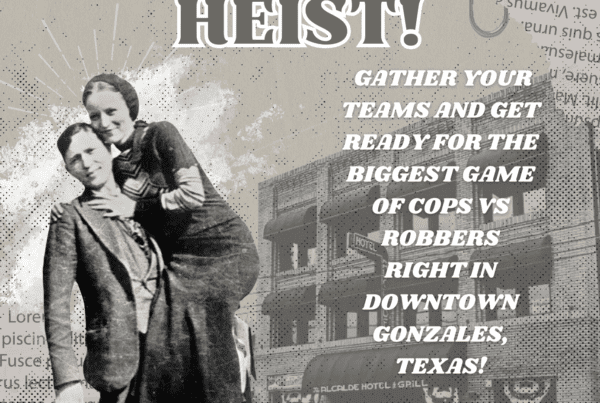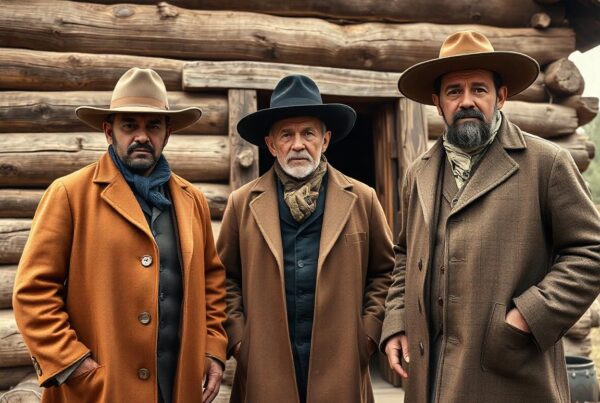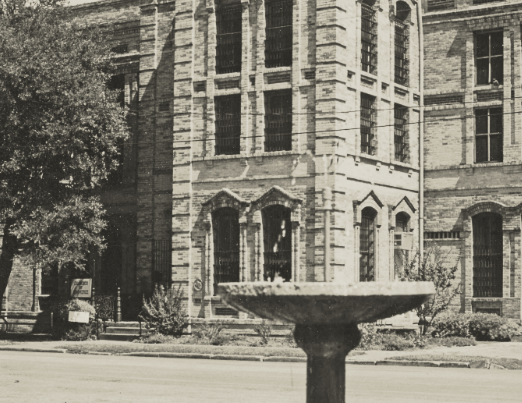The Remschel Brothers offered a large line of wallpaper with artistic designs and coloring, sold at prices ranging from 5 cents to 5 dollars per roll on January 1st. On the same day, Mrs. T. M. Harwood hosted a reception at her recently renovated home for members of the Harwood family and their guests. The seven-course dinner featured a variety of dishes, including tomato puree, oyster cocktails, turkey, cranberry sauce, celery, fresh green peas, mashed potatoes, fruit Charlotte, Waldorf salad, fruit and marshmallow cake, macaroons, fruit, nuts, homemade candy, cheese, nut bread, and coffee. There were twelve guests. Also on January 1, a city-wide clean-up day was held on the 3rd, and all residents were urged to clean their properties.
On January 2, many homes were opened for guests who called on New Year’s Day to wish each other a happy new year. The Beau-Nots received guests at the W.M. Fly home, while the KD Club opened their club rooms to friends, and a dance was held for those who chose to remain. The younger set who would become debutantes upon their graduation received guests at the new home of Mr. and Mrs. R.S. Dilworth (903 St. Lawrence). Advertisements on the same day included one for Foley’s Kidney pills, guaranteed to cure backache, strengthen kidneys, correct urinary irregularities, and eliminate uric acid that causes rheumatism. They also prevented diabetes and Bright’s disease. There were also advertisements for Dr. S.C. Patton, a dentist, and Kleine-Rather Realty Company. Shows were advertised almost daily by traveling troupes who entertained at the Kleine Opera House.
On January 5, Peck & Fly, J.D. Jones, D.M. Livingston, Wade-Moeller Company, and John DuBose & Sons were some of the grocery stores advertising. The Dilworth Bank promised prompt attention, while Hoskins Mercantile had a large ad promising an important message in a few days, which turned out to be a sale. On January 6, J.B. Tadlock advertised that he would make over or custom-make mattresses. He also sold furniture and racket goods. The Women’s Literary Club met on January 8 with Mrs. J.D. Sayers as President.
Mrs. F. M. Fly hosted the Thursday club on January 12, where the ladies sewed and chatted and had dainty refreshments of grape salad, bread and butter, and pimiento sandwiches, as well as chocolate with whipped cream. On the same day, the State Health Officer issued a notice to public health officials that any case of cerebro-spinal-meningitis must be isolated at once, sidewalks cleaned and disinfected, citizens should purchase a nose and throat disinfectant from a druggist, public conveyances cleaned and disinfected, public gatherings avoided, all schools closed, and citizens should not spit on the sidewalks. Eva M. White advertised her services for facial and scalp massages, clipping, singeing, hairdressing, and manicuring on January 12. She also made hair to order and made up hair combings.
On January 16, guards were placed to quarantine Gonzales County to prevent the spread of spinal meningitis. All roads entering the county and all depots were guarded, and schools remained open since there were no cases in the city yet. To place the guards, Dr. Maness had to procure tents and supplies for every guard station. Work also began on January 16 on the Park Square (Texas Heroes) preparatory to building the curbing that would surround the plot that would be beautified by the Civic Club.
On January 17, the Krochmann’s Mercantile building, located on the corner of St. George and St. Joseph in Block 20, will be demolished to make way for the construction of the Dilworth Bank building. Steiren and Forcke, who had bought the building many years ago, made this decision.
On January 18, due to two cases of meningitis reported in Waelder, all entrances into the city were guarded, and the schools were closed. The public was advised not to schedule any gatherings, and the Opera House canceled all shows. Church services and meetings were also canceled. Furthermore, visitors to the city were placed in a detention camp about a mile north of the city on the Luling road, previously known as the poorhouse property.
On January 18, the Inquirer printed several supposed authorities’ letters with cures for meningitis. One of the cures suggested rubbing turpentine on the spine, covering it with flannel, and then heating clothes-pressing irons and applying them to the spine until it blisters.
On January 18, Hoskins Brothers Mercantile announced that it was remodeling and installing a double-wide staircase to the second floor.
In spite of all the warnings, the Thursday Club and the Beau-Nots met on January 18 for their respective activities.
On January 20, the Inquirer reported that Gonzales had escaped recent outbreaks of scarlet fever, diphtheria, and meningitis due to its practice of twice-monthly clean-up days.
On January 22, schools were reopened, and all restrictions were lifted.
On January 24, two cases of meningitis were reported within seven miles of the city.
On January 30, the Inquirer suggested that Gonzales needed a hospital, and the best location for it would be on North Avenue, which was fully a hundred feet higher than the city and, therefore, a more healthful environment. Stahl Brothers announced that they had shipped 347,000 pounds of dressed turkeys from their plant in the past season. Furthermore, it was illegal to throw dead chickens, dogs, etc. into the streets. Violators of this law would be arrested and heavily fined. The garbage wagon would pass by on the first and third Wednesdays of each month to collect trash, which should be put in boxes and placed by the gate by 8 a.m.
On February 7, the Civic Club launched a contest to determine who could create the prettiest backyard, bemoaning that residents spent their resources on the front yard and neglected the rear yard. They suggested planting vines and flowers along unsightly back fences. R.A. Houston, 28, died of heart failure at his home. He was the son of Mr. and Mrs. R.A. Houston, who were both deceased, and he was an unmarried and very successful cattleman.
On February 7, a death from meningitis was reported in Lockhart. On February 8, the Inquirer reported that 20% of all children born in the U.S. died before they reached the age of one. Considerable sickness had affected the young people of Gonzales this year. In December, there was an outbreak of measles, followed by mumps, chickenpox, whooping cough, and now pneumonia. Dr. Maness’s own two young daughters were suffering from pneumonia. A trained nurse had arrived to attend to them the previous night.
On February 8, Electric Bitters were advertised for women suffering from nervous prostration and female weakness. They were the supreme remedy, as thousands had testified, for kidney, liver, and stomach troubles, and were available at local drug stores.
On February 9th, Mrs. T.H. Harwood hosted a delightful buffet luncheon for the members of the DAR, which was one of the most charming social events of the winter. The menu included delicious oyster cocktails, roast turkey with oyster dressing, and other delicacies.
As Valentine’s Day approached, several social events were planned in Gonzales. On February 13th, there was a masquerade ball to celebrate the occasion, and masks could be purchased at Tadlock’s Store. Other events included a party in honor of Judge William F. Ramsay hosted by the honorable T.F. Harwood, a buffet luncheon for the Thomas Shelton Chapter of the DAR hosted by Mrs. R. H. Walker, and the Eastern Star Banquet.
On the same day, February 13th, there were concerns raised about the possibility of a railroad coming through Gonzales. There was worry that the community wouldn’t be able to raise enough money, and that the railroad would instead go through the western part of the county.
On February 17th, R.P. Jahnke announced that he would be selling everything in his store at public auction starting on the 19th at 2:30 pm and 7:30 pm, in order to reorganize and prepare for a new partner.
F.H. Mangliers, the jeweler, declared in a half-page ad on February 19th that he would be selling his stock at wholesale cost prices for the next two weeks.
The February 20th issue of the paper contained various ads for medicinal remedies, including Cardui for women’s complaints, Texas Wonder for kidney complaints, Castoria for digestive disorders, Foley Kidney pills, Foley’s Honey and Tar Compound for bronchitis, Chamberlain’s Liniment, Bucklen’s Arnica Salve for aches and pains, Chamberlain’s Stomach and Liver tablets, Chamberlain’s Cough remedy, Dr. King’s New Discovery for colds and pneumonia, Electric Bitters for stomach, liver, and kidney disorders, and Doan’s Kidney Pills.
On February 27th, Gonzales Dry Goods received a shipment of dress lines, lawns, foulards, silks, and other fabrics.
In other news, on March 11th, The Inquirer reported that the new US flag would have forty-eight stars arranged in six vertical lines of eight each, with Arizona having achieved statehood in February. On the same day, the Gonzales Cotton Oil and Manufacturing plant, which had been established in 1893, had a serious fire in the large hull house. The spread of the fire was halted by the Gonzales Fire Department, but the building continued to burn under the flooring. The damages were estimated to be around $7500, which would be covered by insurance. The manager, J.F. Remschel, who had been injured during the fire, suggested that a new hull house would be built entirely of iron.
On March 14th, The Inquirer reported the death of a six-year-old boy due to meningitis. Despite all precautions taken, including quarantine, this was the first meningitis death in the city. The paper also mentioned that there were cases of catarrh (inflammation of mucus membranes) and la grippe (flu).
On March 19th, it was reported that the new post office on St. Joseph Street had been landscaped with large palm trees.
However, not all news was positive. On March 23rd, it was reported that young boys in the city were engaging in profanity and doubtful behavior instead of attending Sunday School, even going to the river and loitering about until the end of class. Parents were urged to investigate.
On March 25th, an informal “musicale” was held at the residence of Mr. and Mrs. Edward Lewis. Also on the same day, The Air Dome theatre reopened for the season, with admission costing 5 and 10 cents. On March 27th, the Citizens Electric Light and Power Company installed new street lights, which were deemed an improvement over the old lighting system. However, on March 28th, the editor of the local newspaper was informed that three rabid dogs had been spotted and suggested that all dogs in the area be killed to prevent the spread.
On March 30th, ex Supreme Court Justice and current Governor candidate, W.F. Ramsay arrived in Gonzales to speak to his supporters. An estimated 8,000 visitors were in town for the event, which was heralded by a free barbecue and a parade. On April 3rd, Hoskins Mercantile Company offered hand-tailored wool suits for sale at a price of $20, claiming that they were “popular everywhere because it crystalizes in one supreme design a young man’s dream of perfect dress.”
At a City Council meeting on April 5th, it was announced that the new light system installed by Citizens Electric Light and Power Company had been accepted, and a few more suspension lights strung over the center of the streets would be installed. There were also complaints voiced that some building owners let their gutters end at the top of the building, causing water damage to streets and sidewalks. On the same day, Hoskins Brothers had Easter gloves, shoes, waists, parasols, fans, and hosiery for sale.
On April 12th, parents were admonished for allowing their daughters to wear laces, muslins, gauze hose, and slippers to school. The girls were advised to wear heavy woolen clothing for comfort and health. The Civic Club also announced that Gonzales would participate in the “Cleanest City in Texas” contest sponsored by Holland magazine.
An article in the Inquirer on April 15th reported that the Titanic had sunk at 2 p.m. on the same day and that all passengers and crew had gone down with the ship. However, the report had not been verified. Every ship within 200 miles of the Titanic rushed to the location to provide assistance. The passengers and crew were estimated to number around 2,200, and the first SOS had been received at 1 a.m. On April 16th, the Inquirer reported that the Carpathia had arrived in New York with survivors from the Titanic. The ship spokesman announced that 710 souls were on board, but the list of names released had only 687 names. The number of people who were on the Titanic was reported to be 2,180.
On April 17th, residents were reminded of the twice-monthly clean-up days, one of which was scheduled for the same day. Wagons were sent to pick up any garbage that could not be disposed of by the property owner. Also on the same day, it was reported that 1,300 people had died on the Titanic, and all survivors were picked up by the first ship on the scene, the Carpathia, which numbered 868. Lastly, on April 17th, R.A. Remschel let a contract for a new building to be erected on the southwest corner of St. Andrew and St. Paul Streets. It was reported to be 60 feet deep and 110 feet across, and Meisenhelder was the contractor.
A new cotton seed house was rushed to be constructed on April 20th, to replace the one that had burned down in March at the Gonzales Cotton Oil and Manufacturing Company. On April 22nd, Gonzales Drug Company and Gonzales Hatters advertised their hat cleaning services. The foundation for the Dilworth Bank building was almost completed on April 23rd, and the brick masons were ready to start their work. Ships were picking up bodies of Titanic victims with flotation devices in the vicinity on the same day. Mrs. H. Reese, Jr. was offering eggs for hatching from a heavy-laying, prize-winning strain. On April 26th, the Inquirer reported that winter had bid farewell and ladies could safely wear their thinnest lingerie frocks and carry fans without fear of being caught in a norther before returning home. Citizens were urged to attend a meeting on the same day with men from San Antonio who were planning a road from San Antonio to Port O’Connor. Gonzales citizens were also urged to make efforts to get the road routed through Gonzales. Clean-up days continued, and citizens were advised to pour gasoline in ant hills and set them on fire to get rid of them. Louisiana was suffering from a record-breaking flood, predicted to last another two months and causing disease and a plague of snakes.
On May 4th, the County Clerk reported twenty-five births and sixteen deaths in the county during April. The Air Dome Theatre appeared to be doing a fine business with new showings regularly scheduled on May 22nd, while plays were shown at the Opera House as well. Hoskins Mercantile advertised “tub suits” for men on May 25th, made of mohair, pongee, or seersucker and costing $3.50 to $20, supposedly “cool as a cucumber for the summer.” A new sidewalk had been built in front of the Catholic and Episcopalian churches, adding much to the appearance of the area on May 27th. Crowning of the “May Queen” and a band concert at North Avenue Park was planned for the 30th on the same day. Lum Ollre was shot by Alex Schleyer at Ollre’s home on May 31st, and Ollre was expected to recover. After a heavy rain on June 3rd, city employees were digging boxes and pieces of boxes out of the storm drains to avoid unnecessary flooding in the city. Merchants were asked not to stack boxes or debris on their curbs or in the streets and to keep the welfare of their city in their hearts. The Civic Club, which had been urging citizens to make their property attractive to win the “Cleanest City in the United States” award from “Holland” magazine, gave a list of things to do on June 12th. Instructions included draining all standing water to discourage mosquitoes, cleaning horse and cow lots to eliminate flies, getting all garbage away from residences and into garbage dumps, cutting weeds and grass, and poisoning any flies or mosquitoes found.
In June, the Civic Club agreed to pay 25 cents for every pint of flies brought in by the public. In July, an ordinance was passed that required all awnings and galleries constructed over sidewalks to be made of metal or wire glass, without any supporting posts extending down to the sidewalk. Work also began to lay wires for lamp posts around Confederate and Texas Heroes Squares. In August, the San Antonio/Aransas Pass Railroad contracted with the light company to install street lights at several crossings, and five electric fans were installed in the Methodist Church. By September, the county’s estimated population had reached 44,286, and T.S. Hodges was awarded a contract to remove bats that had been infecting the jail for years. The cement walks bordering the High School campus were almost completed, and the total receipts of cotton at the warehouse and cotton yard combined showed an increase from last year. The fair dates were changed to November due to difficulty securing a carnival for the original October dates. In October, new City Ordinances were passed, including vehicle regulations, speed limits, and fines. The Gonzales Inquirer also reported that the town had achieved cleanliness, beauty, and unity of effort.
The long-awaited judge for Holland Magazine’s “cleanest town in Texas” contest came and went on October 17, and reports indicate that he was very pleased with what he saw. Democrat Woodrow Wilson was declared the winner of the Presidential election on November 7. On November 21, the eighth annual County Fair opened with a parade at 2 p.m., with another to be held the following day that includes a baby parade. Thousands were expected to attend the fair that year. On the same day, an editorial begged the citizenry to begin beautifying North Avenue Park, suggesting a fountain or monument to honor one of the outstanding citizens, as well as arches and shade trees. Also on November 21, a Gonzales County resident complained that with the new ordinance forbidding horses to be tied in town, he and his family couldn’t come to town to shop. The Inquirer sympathized and urged the City to provide more wagon yards.
The Hoskins Building was being remodeled on December 5 to accommodate a moving picture show, which opened two nights later. Michelson Brothers Candy Company began operating in the 600 block of St. Joseph Street on December 12 after buying the business from George Simo, who was returning to his home in Macedonia to fight the invaders from Turkey. On December 19, Gonzales was selected as the cleanest town in Texas by Holland Magazine, earning $300. On December 21, the Gonzales Civic Club, a ladies’ club, completed landscaping of Texas Heroes (Block 18) and of Confederate Square (Block 24), including curbing, cement walks, grass, ligustrums, palms, magnolias, and sixteen lamp posts.
During that time, the first Gonzales chapter of the Girl Scouts was formed, later dissolved and reformed. The Episcopal Rectory was built (Block 46) at 721 St. Louis Street, and the C.E. Dilworth House was completed at 222 St. Peter Street (Block 41), with architect J. Riely Gordon.










